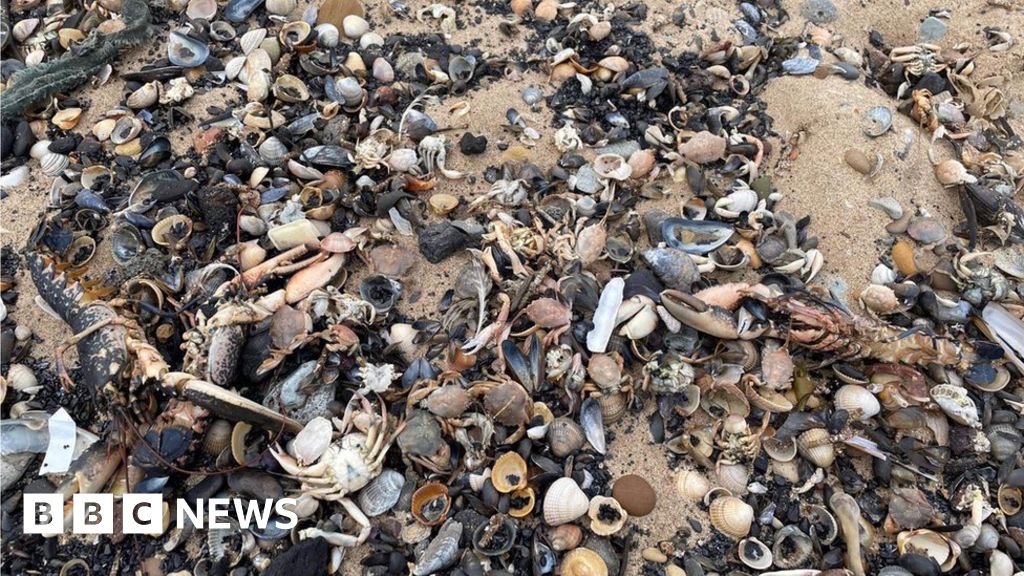North Yorkshire Council backs calls for shellfish die-off public inquiry

- By Anttoni James Numminen
- Local Democracy Reporting Service
Image source, Sally Bunce
The mass die-off on 40 miles (70km) of coastline saw shellfish washed ashore between October and December 2021
A council is backing calls for a public inquiry into the deaths of shellfish off the North East and North Yorkshire coast.
Since late 2021, thousands of marine creatures, including crabs, have washed up dead between Hartlepool and Whitby.
No definitive cause has been found, with fishermen claiming it was linked to the dredging of the River Tees.
The Secretary of State for Environment, Food and Rural Affairs previously said no further analysis will take place.
At a meeting on Wednesday, North Yorkshire councillors failed to reach an agreement over amendments proposed by Conservative councillors seeking to change the original motion put forward by Labour and the Liberal Democrats.
A motion with alternative wording was proposed by Conservative councillor George Jabbour, which took a more cautious approach to the possibility that the die-offs could have been caused by dredging.
However, the motion did call on secretary of state Thérèse Coffey to support the local economy and to “help in securing financial compensation for the fishing industry”.
Labour councillor Neil Swannick, whose Whitby division has been affected by the die-offs and put forward the original motion, said: “I can’t think that anybody would not now understand that this is a big issue for fishing communities on the North East coast.
“The net result was that there will be pressure on the secretary of state to convene a public inquiry, which was the original aim of my motion.”
The mass die-off of marine life on 40 miles (70km) of coastline from Hartlepool to Whitby saw crustaceans washed ashore between October and December 2021.
Fishermen believe the deaths are due to chemicals released during the dredging of the River Tees
Previous research, supported by the fishing industry, had suggested the deaths could have been due to the chemical pyridine, possibly from dredging in the mouth of the River Tees.
The Department for Environment Food & Rural Affairs (Defra) had said it was likely to be due to naturally-occurring harmful algae.
However, a panel of 12 experts said in January no definitive cause had been found, but they ruled out pyridine and concluded it was possible a disease or parasite new to UK waters was responsible.
A spokesperson for the local Conservative Association said: “The amended motion enhances the original motion to not only call for a public enquiry in the manner they requested but also called on the government to create and fund a dedicated task force to continually monitor the situation and compensate those affected.”













